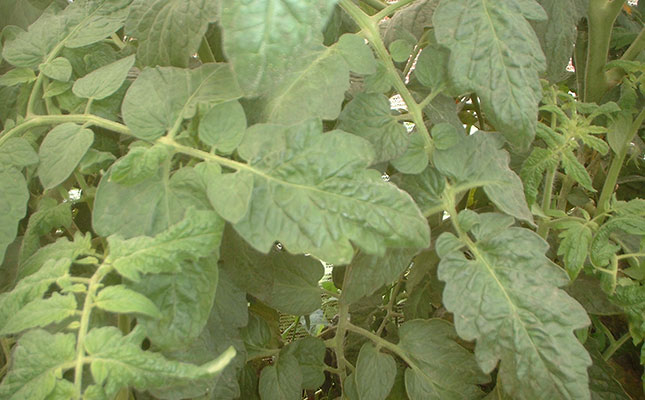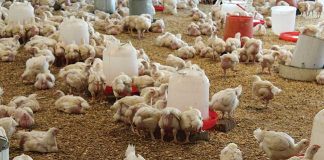
Photo: Bill Kerr
Different crops require different amounts of nitrogen for optimum growth. A high availability of most other minerals might have a negligible effect on a crop, but too much nitrogen can be a huge problem.
Too little, on the other hand, can halt growth altogether. Add the ease with which it can be lost from the soil, and we need to closely monitor this element. Some guidelines:
- Leafy crops
In crops where the leaf portion is eaten, nitrogen plays an important role in the volume produced. An aspect often neglected is that there has to be enough nitrogen in the root area of transplants for the crop to make the large outer leaves, which provide the framework for the plant to produce a good yield. Add too little nitrogen, and the plant will go into survival mode rather than productive mode. - Tomatoes
With tomatoes, the plant needs enough nitrogen to make a good-sized plant. Unless leaching takes place, there’s usually sufficient nitrogen from the basic fertiliser application at this stage. When flowering is in full swing, lower nitrogen levels will encourage fruit set. When fruit is filling, you need to increase the nitrogen to provide size and get the plant to fill the trusses. Get this right by observing the colour of the leaves. Also, don’t overdo the nitrogen at a later stage. This can result in a change in fruit shape and firmness. - Carrots
Although carrots can do with a fair amount of nitrogen, their deep and extensive
root system enables them to source this right down to deep layers. Indeed, carrots can make use of nitrogen that has leached beyond the root zone of the previous crops grown. On account of this, you can get away with planting carrots with no fertiliser. As long as they have access to sufficient sunlight, the leaves can be a medium colour and the plant will still produce enough. - Peppers
Peppers need a healthy amount of nitrogen in order to produce thick-walled, heavy fruit. Again, gauge the crop’s requirements by the size and colour of the leaves. Keep the nitrogen levels up right to the end of the crop.
Organic content
The organic content of the soil makes a huge difference in securing and regulating nitrogen. I once had fairly high-volume sprinklers running on a section of land. I opened the sprinklers at midday, intending to switch them off at 5pm.
I forgot to do so and they ran right through the night until the next morning. There was no difference in the area over-irrigated even after a couple of months.
I have 5% humus in my soil and this prevented leaching. If I had 1%, I would have lost my nitrogen.
Bill Kerr is a vegetable specialist and a breeder of a range of vegetables.











